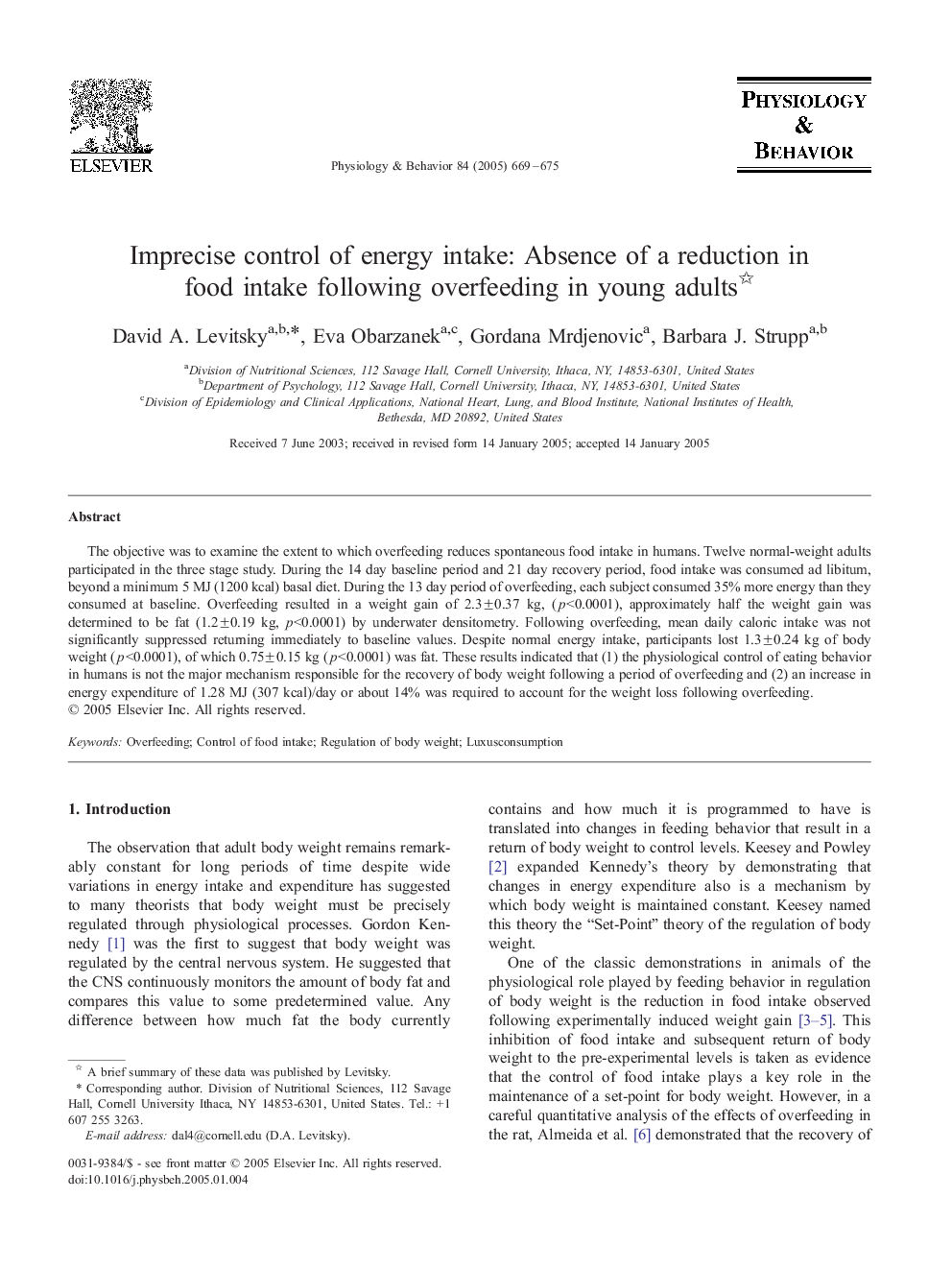| کد مقاله | کد نشریه | سال انتشار | مقاله انگلیسی | نسخه تمام متن |
|---|---|---|---|---|
| 9149597 | 1166428 | 2005 | 7 صفحه PDF | دانلود رایگان |
عنوان انگلیسی مقاله ISI
Imprecise control of energy intake: Absence of a reduction in food intake following overfeeding in young adults
دانلود مقاله + سفارش ترجمه
دانلود مقاله ISI انگلیسی
رایگان برای ایرانیان
موضوعات مرتبط
علوم زیستی و بیوفناوری
بیوشیمی، ژنتیک و زیست شناسی مولکولی
فیزیولوژی
پیش نمایش صفحه اول مقاله

چکیده انگلیسی
The objective was to examine the extent to which overfeeding reduces spontaneous food intake in humans. Twelve normal-weight adults participated in the three stage study. During the 14 day baseline period and 21 day recovery period, food intake was consumed ad libitum, beyond a minimum 5 MJ (1200 kcal) basal diet. During the 13 day period of overfeeding, each subject consumed 35% more energy than they consumed at baseline. Overfeeding resulted in a weight gain of 2.3±0.37 kg, (p<0.0001), approximately half the weight gain was determined to be fat (1.2±0.19 kg, p<0.0001) by underwater densitometry. Following overfeeding, mean daily caloric intake was not significantly suppressed returning immediately to baseline values. Despite normal energy intake, participants lost 1.3±0.24 kg of body weight (p<0.0001), of which 0.75±0.15 kg (p<0.0001) was fat. These results indicated that (1) the physiological control of eating behavior in humans is not the major mechanism responsible for the recovery of body weight following a period of overfeeding and (2) an increase in energy expenditure of 1.28 MJ (307 kcal)/day or about 14% was required to account for the weight loss following overfeeding.
ناشر
Database: Elsevier - ScienceDirect (ساینس دایرکت)
Journal: Physiology & Behavior - Volume 84, Issue 5, 13 April 2005, Pages 669-675
Journal: Physiology & Behavior - Volume 84, Issue 5, 13 April 2005, Pages 669-675
نویسندگان
David A. Levitsky, Eva Obarzanek, Gordana Mrdjenovic, Barbara J. Strupp,